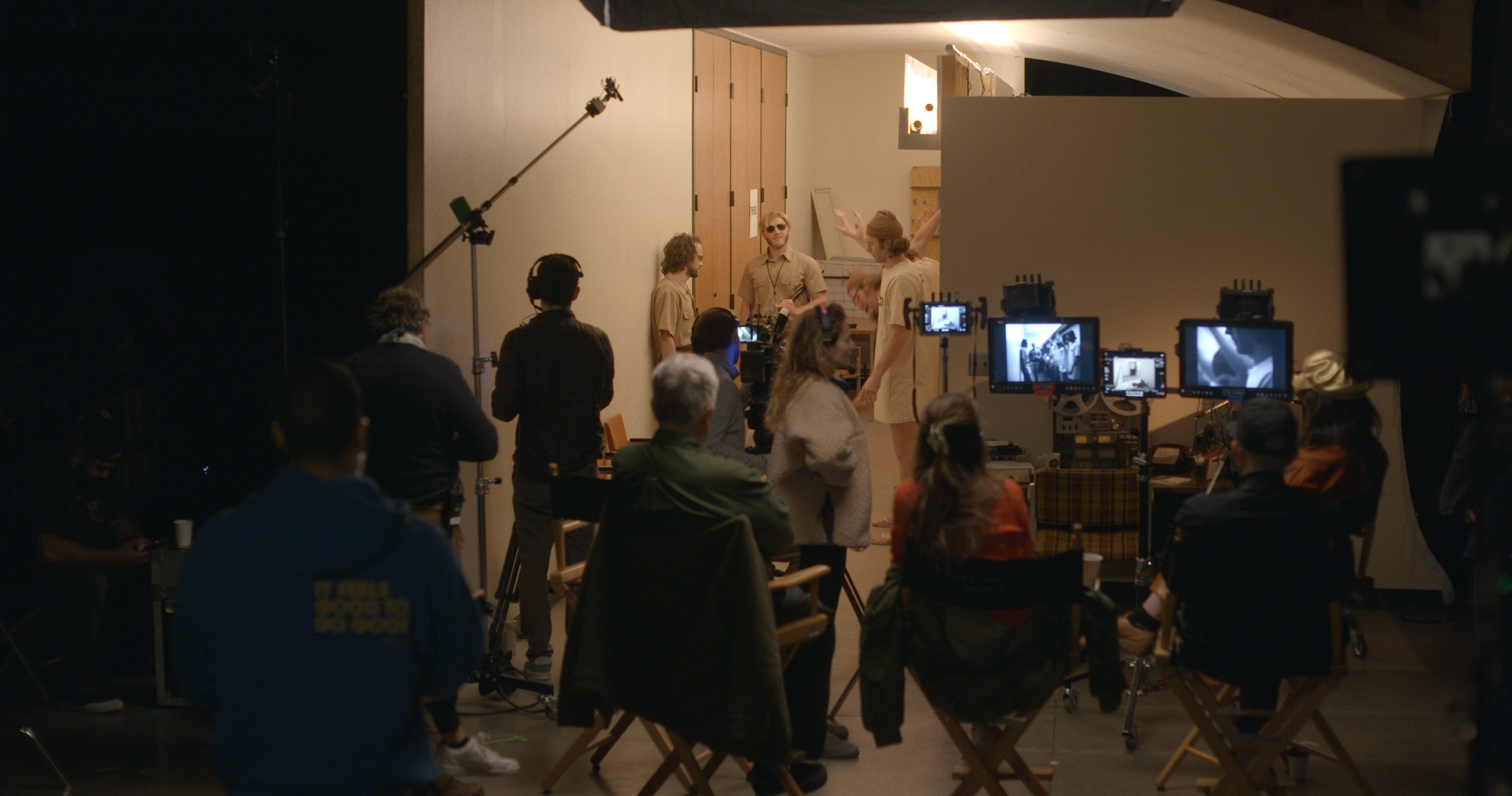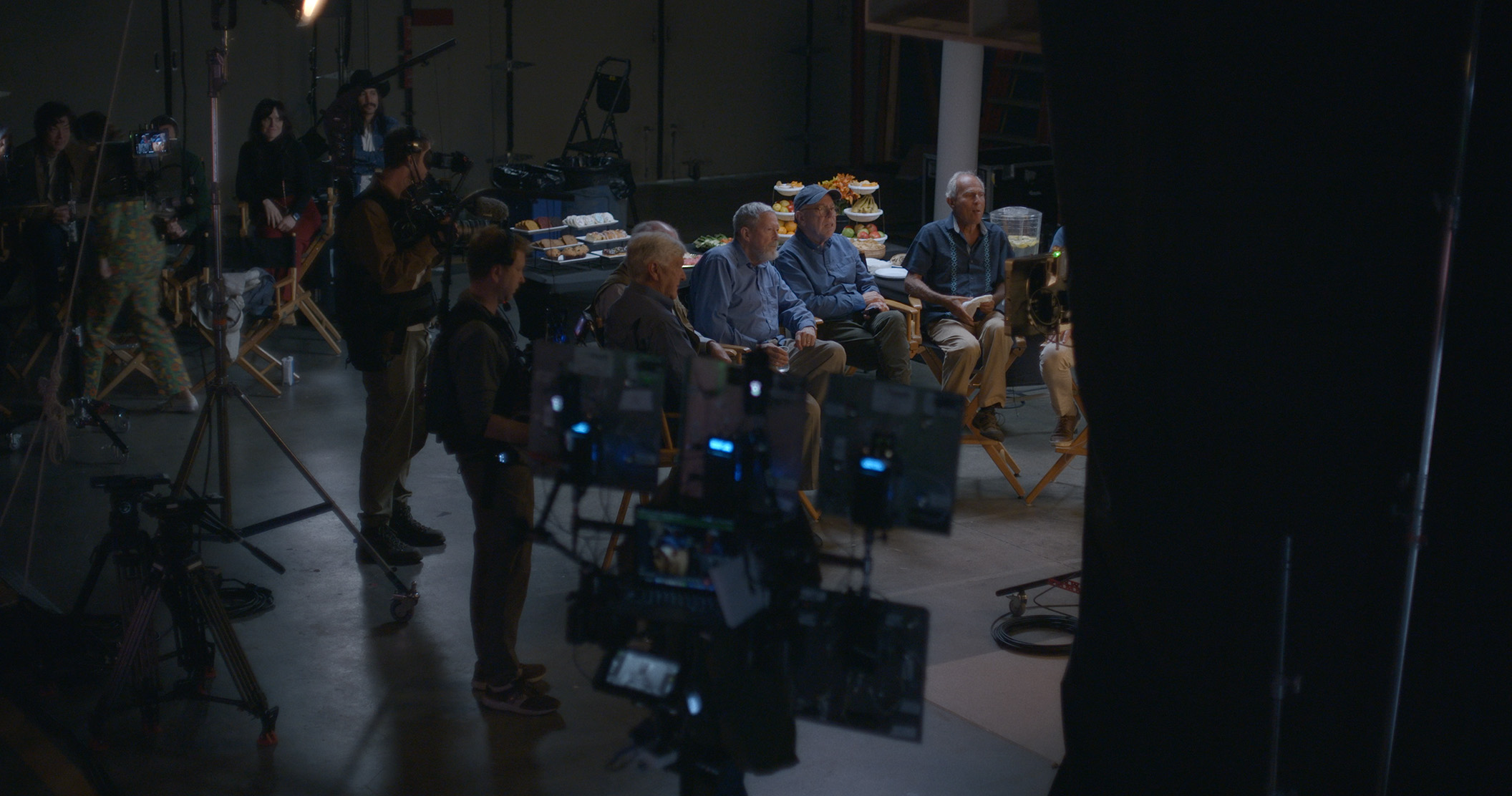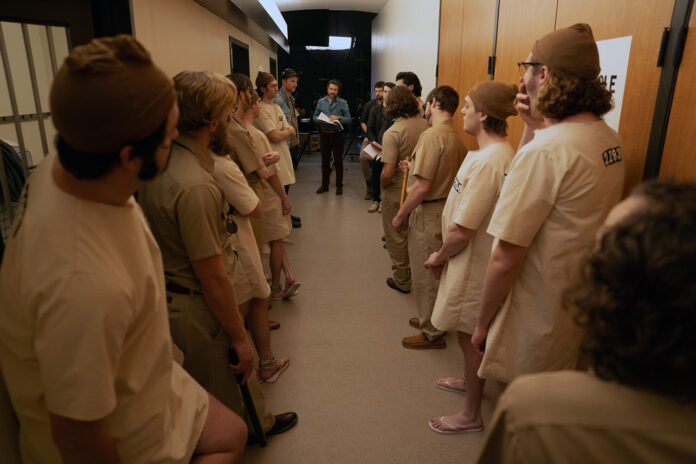In its latest offering, National Geographic dives into the notorious Stanford Prison Experiment with the three-part docuseries The Stanford Prison Experiment: Unlocking the Truth, which premiered on Wednesday, Nov. 13, 2024. The series is also available on Disney+ and Hulu. This meticulously researched project comes from director Juliette Eisner and executive producer Alex Braverman, under the banner of Muck Media, a production house with a track record of acclaimed work. Fresh off multiple Emmy® wins for series like Trafficked with Mariana van Zeller, Muck Media turns its investigative lens to one of the most enduring and contentious studies in psychology.
The docuseries reconstructs the Stanford Prison Experiment’s six days using newly uncovered archival materials, firsthand accounts, and a meticulously recreated prison set where participants piece together their often conflicting recollections. For the first time, many of the original “guards” and “prisoners” break their silence, challenging long-held narratives about what truly occurred. This dynamic approach—integrating multimedia storytelling with interactive elements—transforms an academic subject into a gripping and visually compelling experience, particularly appealing to those fascinated by the complexities of human behavior.

A Deeper Dive Into the Experiment’s Myths and Motives
Since its initial publication in 1971, the Stanford Prison Experiment has loomed large in public discourse about human nature and morality. But as the series reveals, the widely accepted version of events may be incomplete—or even misleading. Director Juliette Eisner, in one of the project’s most striking revelations, emphasizes how the experiment’s story was largely shaped by its architect, Dr. Philip Zimbardo, while many participants remained silent for decades.
“In the fifty years since the experiment, I was surprised to learn that few participants had spoken out, and their testimonies added layers of secrets, contradictions, and perspectives that upend the simplicity of Zimbardo’s narrative,” Eisner explains. This nuanced framing is particularly poignant following Zimbardo’s recent passing, adding urgency to the exploration of his legacy.

The Episodes: A Forensic Breakdown of the Experiment
The series opens with “The Hallway,” introducing audiences to the basic structure of the experiment and offering firsthand recollections from participants who describe their descent into their roles as guards or prisoners. The second episode, “The Unraveling,” digs deeper, calling into question Zimbardo’s interpretations and integrating insights from an intrepid French researcher. In a bold move, the filmmakers also reveal their own narrative techniques, demonstrating the constructed nature of storytelling. The final installment, “A Beautiful Lie,” sees Zimbardo defending his life’s work, while a surprise reunion of participants offers emotional closure and fresh perspectives on the event’s legacy.
Beyond the Experiment: What We Learn About Human Nature
At its core, The Stanford Prison Experiment: Unlocking the Truth is not merely a recounting of a psychological study; it’s a meditation on mythmaking, power dynamics, and the subjectivity of memory. By revisiting the prison in a physical sense, participants confront their past actions and try to bridge gaps in their understanding. This approach turns the series into more than just a historical inquiry—it’s an active investigation into the complexities of human behavior.
In its execution, the series stands out for its interactive editing, which seamlessly blends archival footage, contemporary interviews, and dramatized re-creations. This dynamic presentation mirrors the chaotic and multifaceted nature of the experiment itself, making the series an engaging experience for both casual viewers and psychology enthusiasts.
A Timely Exploration of Perspective
The timing of this docuseries is no accident. With Zimbardo’s passing, the psychological community and the broader public are reflecting on his work with fresh eyes. The Stanford Prison Experiment: Unlocking the Truth does more than memorialize a controversial figure—it invites viewers to scrutinize the stories we accept and the narratives we question. For those fascinated by the blurred lines between good and evil, fact and fiction, this series is an essential watch.
Discover more from SNAP TASTE
Subscribe to get the latest posts sent to your email.



